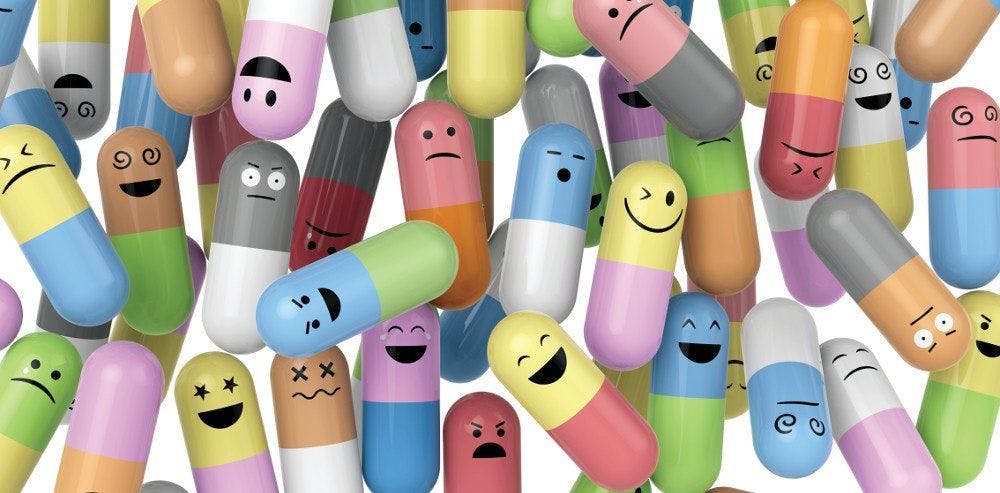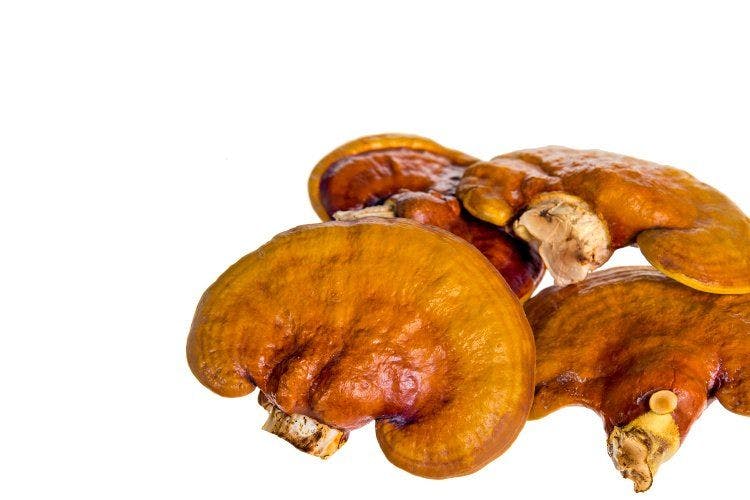CBD’s potential health benefits: antidepressant, anti-inflammatory, chronic pain, and more
While CBD offers a new paradigm of treatment for various health conditions, significant questions remain to be answered.
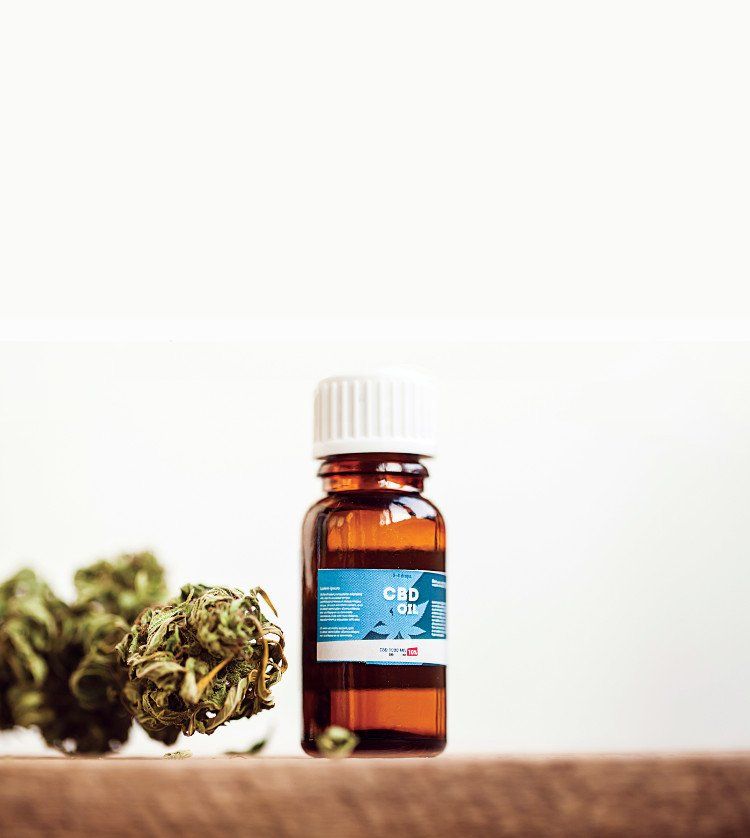
The popularity of cannabidiol, or CBD, continues to explode, with estimates from BDS Analytics, a cannabis research firm, suggesting that the U.S. market could reach $20 billion by 2024.1 A trip to any convenience store, grocery store, or natural foods store today is likely to yield a plethora of CBD products in almost any form imaginable. CBD is a phytocannabinoid most often extracted from plants in the Cannabis genus, including hemp and marijuana. Unlike another phytocannabinoid from Cannabis, tetrahydrocannabinol (THC), CBD has a complete lack of psychoactivity.2
Phytocannabinoids generally exert their effects by binding to cannabinoid receptors that are a part of the human endocannabinoid system; however, CBD itself shows negligible affinity for binding to the CB1 and CB2 receptors3, indicating that it exerts its effects through other mechanisms. Preliminary research into CBD is promising, showing that the compound has anti-inflammatory, anti-anxiety, anti-depressive, and neuroprotective properties. Recent studies demonstrating the beneficial effects of CBD in laboratory and animal models are detailed here. Initial clinical trials have also been conducted, showing therapeutic potential in several health conditions; however, it should be noted that the majority of these utilize pharmacological (drug) preparations of CBD, meaning it can’t be assumed their results translate to similar benefits in dietary supplement, food, beverage, or other non-drug delivery forms.
Even with the proliferation of products containing CBD, a lack of clarity regarding the regulatory status of CBD is a significant hurdle to more robust clinical research. As FDA develops guidance related to a legal path to market for this compound, it is likely that better-quality research will be performed to determine what levels are safe and efficacious.
Concerns about the safety of CBD have also been raised recently, and this remains an open question. An animal study conducted at the University of Arkansas for Medical Sciences (Little Rock, AR) found liver toxicity concerns at certain dose levels4, highlighting the necessity of establishing safe intake levels for humans. Given that CBD-containing products with many compositions and dosages are already freely available in the marketplace, this issue will need resolution and clarity. So, while CBD offers a new paradigm of treatment for various health conditions, significant questions remain to be answered.
References
- Dorbian I. ”CBD Market Could Reach $20 Billion By 2024, Says New Study.” Forbes.com. Published May 20, 2019. Accessed at: https://www.forbes.com/sites/irisdorbian/2019/05/20/cbd-market-could-reach-20-billion-by-2024-says-new-study/#1792522c49d0
- Burstein S. “Cannabidiol (CBD) and its analogs: a review of their effects on inflammation.” Bioorganic & Medicinal Chemistry, vol. 23, no. 7 (April 1, 2015): 1377-1385
- Zou S et al. “Cannabinoid receptors and the endocannabinoid system: signaling and function in the central nervous system.” International Journal of Molecular Sciences. Published online March 13, 2018.
- Ewing LE et al. “Hepatotoxicity of a cannabidiol-rich cannabis extract in the mouse model.” Molecules. Published online April 30, 2019.
Photo © AdobeStock.com/Elroi

Neuroprotection in Alzheimer’s Disease Model
In several laboratory and animal studies, CBD has been found to confer beneficial effects on the neurological system. Blathnaid Hughes and Caroline Herron from University College Dublin (Dublin, Ireland) aimed to evaluate the potential neuroprotective effect of CBD in a lab model of Alzheimer’s disease.5
Hippocampal slices from mice were exposed to soluble beta-amyloid peptide associated with Alzheimer’s disease. Application of beta-amyloid led to a decrease in long-term potentiation (LTP), a measure of the efficacy of synaptic (or nerve) transmission. CBD from STI Pharmaceuticals (Essex, United Kingdom) was then applied to the slices; however, no improvement in LTP was noted. The researchers then pretreated mouse hippocampal slices with CBD prior to adding beta-amyloid protein. In this scenario, CBD showed a neuroprotective effect, inhibiting the beta-amyloid–induced deficit in long-term potentiation.
In evaluating the mechanism of action, investigators discovered that CBD may interact with PPAR-gamma, a nuclear receptor that is normally present in the central nervous system at low levels; however, its expression is increased under inflammatory conditions. CBD likely activates the expression of PPAR-gamma, leading to the inhibition of pro-inflammatory gene expression by blocking NF-kappa B, a transcription factor involved in the inflammatory pathway. Thus, an important aspect of CBD’s neuroprotective effect may be related to a reduction in inflammation.
References
5. Hughes B et al. “Cannabidiol reverses deficits in hippocampal LTP in a model of Alzheimer’s disease.” Neurochemical Research, vol. 44, no. 3 (March 2019): 703-713
Photo © iStockphoto.com/pavlen

Antidepressant Effect
Current treatment options for depression can be problematic as there is often a time lag associated with their effect. CBD may hold potential as a promising alternative in this area. Amanda Sales and colleagues from the University of São Paulo (São Paulo, Brazil) looked at the anti-depressant effects of CBD in mice and rats in order to investigate whether CBD has a fast-acting onset.6
In the study, CBD from THC Pharma (Germany) was administered as a single dose in an amount of 7, 10, or 30 mg/kg body weight. Mice then underwent a forced swim test at 30 minutes or 7 days following treatment. Results showed that CBD induced an anti-depressant effect in a dose-dependent manner. Repeating this test with rat species yielded similar results. These acute antidepressant effects (evaluated in the swim task 30 minutes after CBD administration) were found to be related to CBD’s ability to increase brain-derived neurotrophic factor (BDNF) levels in the hippocampus and prefrontal cortex of the animals. BDNF is an important growth factor for neurons. Markers of synaptic plasticity (necessary for brain remodeling) were also increased in the prefrontal cortex.
The longer-term antidepressant effects of CBD (evaluated in the forced swimming task 7 days after CBD administration) were found to be associated with an enhancement of synaptic function in the prefrontal cortex. These results support that CBD is a fast-acting antidepressant and possesses sustained effects, leading to longer-term antidepressant activity. While further studies are needed, this initial data suggests that CBD could be a promising therapy for mood disorders, including depression.
References
6. Sales AJ et al. “Cannabidiol induces rapid and sustained antidepressant-like effects through increased BDNF signaling and synaptogenesis in the prefrontal cortex.” Molecular Neurobiology, vol. 56, no. 2 (February 2019): 1070-1081
Photo © iStockphoto.com/J-Elgaard
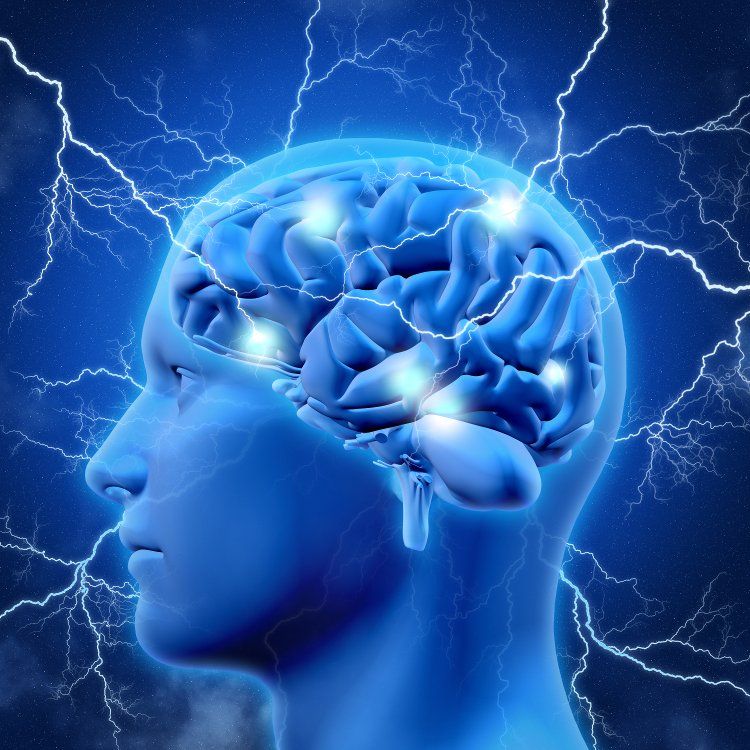
Chronic Pain and Neurological Dysfunction
Traumatic brain injury (TBI) leads to persistent neurological dysfunction and is often associated with chronic pain, anxiety, and depression. Many of the symptoms experienced may be related to inflammation and cellular death. Currently, no adequate treatment options exist for these symptoms.
Carmela Belardo and colleagues from University of Campania Luigi Vanvitelli (Naples, Italy) looked at the potential role of CBD in a mouse model of traumatic brain injury. In the study, 10% CBD oil from the Enecta Group (Bologna, Italy) was administered to mice with and without mild traumatic brain injury orally by gavage on days 1 to 14 and days 50 to 60 of the study. Thereafter, the effect on sensory and neuropsychiatric dysfunction was evaluated.7 The timepoints of administration were chosen based on previous work in mice showing that symptoms of TBI such as aggressiveness, recklessness, and sensory changes occur in the acute phase, while depression-like behavior occurs in the late phase.
CBD oil was found to exert a beneficial effect on behavioral dysfunctions associated with TBI, while no abnormal behavioral changes were seen in non-injured animals given CBD. Moreover, treatment with CBD in mice with TBI significantly reduced pain behaviors. As many of these changes were associated with alterations in cortical biochemical release, CBD was found to partially normalize the biochemical changes, showing that it may exert promising benefits for neurological function in traumatic brain injury.
References
7. Belardo C et al. “Oral cannabidiol prevents allodynia and neurological dysfunctions in a mouse model of mild traumatic brain injury.” Frontiers in Pharmacology. Published online April 16, 2019.
Photo © iStockphoto.com/kirstypargeter
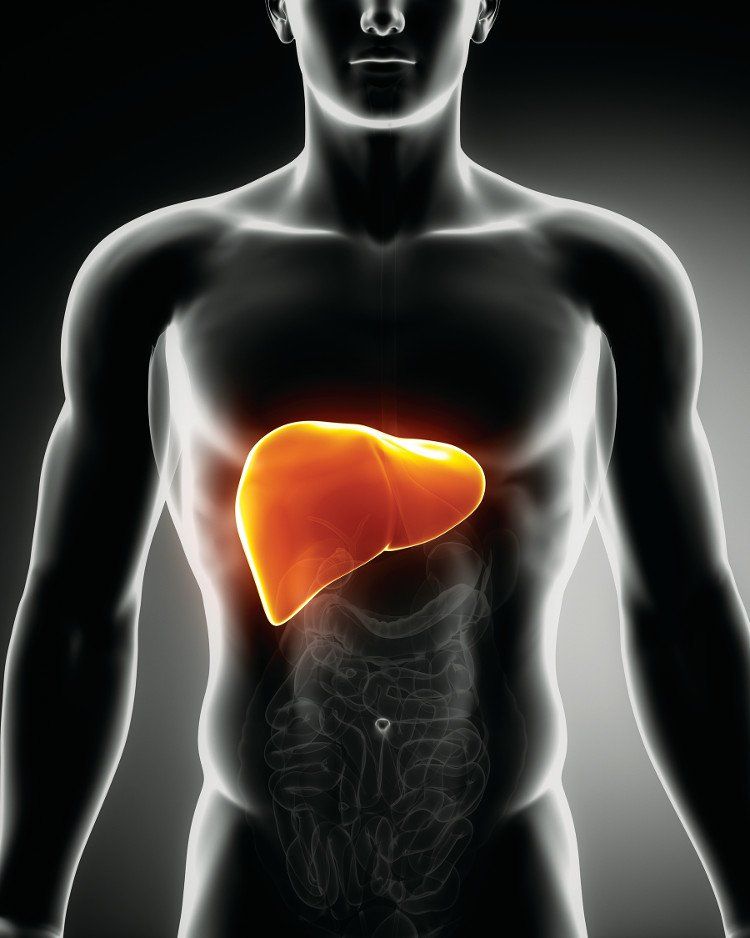
Liver Anti-inflammatory
Nonalcoholic fatty liver disease (NAFLD) impacts 25%-45% of the population, with obesity, type 2 diabetes mellitus, hyperlipidemia, and metabolic syndrome considered major risk factors. Nonalcoholic steatohepatitis is an intermediate stage within the NAFLD spectrum and in the U.S. is the third main cause of liver transplants. Research has suggested that CBD may be protective against hepatic fat accumulation.
Yuanling Huang and colleagues from Sun Yatâsen University (Guangzhou, Guangdong, China) decided to investigate the effects of CBD administration on liver inflammation in mice fed a high-fat diet.8 Mice were divided into three groups: control, high-fat diet, and high-fat diet plus CBD-5 mg/kg body weight per day from Tocris Bioscience (Ellisville, MO)-for eight weeks. The high-fat diet was used to induce hepatic steatosis.
After the end of the study, tissue analysis revealed that CBD attenuated high-fat diet-induced liver injury and inflammation, including normalization of serum lipids and liver enzymes (ALT). Additional work led to an investigation of the mechanism of action and revealed that CBD deactivated NF-kB in mouse liver cells, leading to a reduction of inflammation. As NF-kB is a transcription factor associated with hepatic steatosis and injury, this effect of CBD was significant. As a potent anti-inflammatory in the liver, CBD may be a novel treatment protecting against the progression of NAFLD.
References
8. Huang Y et al. “Cannabidiol protects livers against nonalcoholic steatohepatitis induced by high-fat high cholesterol diet via regulating NF-κB and NLRP3 inflammasome pathway.” Journal of Cellular Physiology, vol. 234, no. 11 (November 2019): 21224-21234
Photo © iStockphoto.com/janulla
References


.png&w=3840&q=75)

.png&w=3840&q=75)



.png&w=3840&q=75)



.png&w=3840&q=75)








